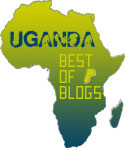Blogren,
Berkterns and others, I need your advice.
I'm taking a class on the social impact of mass media. Tonight we discussed the printing press, and how print lends — now less than before, but I think it still applies — a legitimacy to thought that ideas that haven't been committed to paper lack.
Someone suggested that all new forms of media give increased levels of authority to the ideas they transmit — not just print, but radio and television as well.
I argued that this rule doesn't hold for the Internet, and I was promptly shot down by a surprisingly large number of people in the class. Their points were:
- The Internet isn't a grand democratic commons. It's highly elite.
- People do believe everything they read on the Internet. One example was a newspaper in Bangladesh reprinting a full article from The Onion, not understanding that it was a joke.
I concede the first point. The Internet is definitely not a perfectly democratic commons, though I maintain that, compared to the
highly expensive,
highly rare (not to mention
extremely heavy) printing press, it is far more accessible to the average citizen, whether we're speaking domestically or globally. Though it requires access to a computer, Internet access can often be had cheaply or for free through government programs or at public libraries or Internet cafés.
More importantly, the cost of publication and distribution online is so comparatively small — and the amount of information published and distributed so comparatively great — that I believe it's disingenuous to say that the Internet and the printing press endow ideas with the same authority. Being exceedingly careful to avoid value judgements, I submit that the blog is a very different beast than the Bible.
As for the second point, I would argue that the confusion over what is and is not a legitimate source online stems more from cultural — and here I include generational — differences than from a sense that all things online are true. Expecting accurate cross-cultural interpretations of satire is demanding quite a lot from journalists whose native language is likely not English, as is expecting accurate assessments of spam from someone who still thinks it comes in a can.
So. Am I totally wrong? And if so, why? I was born the same year Apple introduced the Macintosh and got my first e-mail account in sixth grade, so my knowledge of the Internet is primarily first-hand, rather than scholarly. Any articles to which you can refer me would be greatly appreciated, but I'm also looking for personal opinions. When did you first access the Internet? How? Where? Why? What did you think?
The comments are open, folks. Looking forward to your thoughts.
Labels: ICT, media, technology






